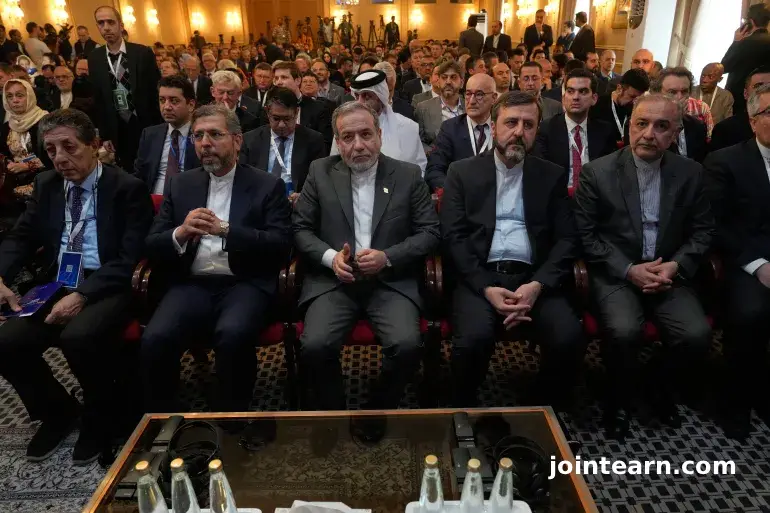
Tehran – Iranian authorities have indicated that meaningful negotiations over the country’s nuclear program remain unlikely, as the United States and its Western allies maintain a hardline approach. Iranian officials claim that the West’s “maximalist demands” leave little room for dialogue, raising concerns about escalating tensions in the Middle East.
Iran Rejects Western Pressure
At a news conference in Tehran, Iranian Foreign Minister Abbas Araghchi said the U.S. administration under President Donald Trump has shown no readiness for “equal and fair negotiation to secure mutual interests.” He emphasized that Iran continues to pursue its right to peaceful nuclear energy, including uranium enrichment, while condemning Western policies as overly coercive.
Araghchi also highlighted ongoing communication with neighboring countries attempting to mediate and maintain regional stability. A letter from Araghchi was reportedly delivered to Qatari Prime Minister Sheikh Mohammed bin Abdulrahman bin Jassim Al Thani, addressing Iran’s nuclear program, the ceasefire in Gaza, and other regional concerns.
Impact of Facility Attacks on Iran’s Nuclear Program
Iran has stated that it has not been enriching uranium at its nuclear sites since U.S. and Israeli strikes in June damaged several facilities, including Natanz, Fordo, and Isfahan. The attacks, which occurred shortly after an International Atomic Energy Agency (IAEA) resolution found Iran noncompliant with safeguards, represent an unprecedented assault on facilities under agency supervision.
Iranian nuclear chief Mohammad Eslami criticized the IAEA for allegedly being politicized, claiming the agency enforces “double standards and a law of the jungle.” He noted that the attacks violated international law, yet the IAEA did not condemn the strikes.
Ongoing IAEA Involvement
Despite tensions, Iran maintains communication channels with the IAEA. The country has granted access to the Bushehr Nuclear Power Plant and the Tehran Research Reactor, but security concerns have prevented inspections at other high-enriched uranium facilities.
A leaked IAEA report confirmed that inspectors have not been able to verify Iran’s stockpile of 60 percent-enriched uranium following the attacks, prompting calls for “long overdue” inspections at multiple sites.
European and U.S. Pressure
Iranian officials warned that France, the United Kingdom, and Germany—former signatories to the 2015 nuclear deal—may push for a new IAEA resolution targeting Iran. Tehran described the move as U.S.-backed efforts to reinstate UN sanctions, despite opposition from China and Russia.
Deputy Minister for International and Legal Affairs Kazem Gharibabadi said that new resolutions would not exert meaningful pressure on Iran but signal that Western powers prioritize unilateral action over diplomatic engagement.
Military Readiness and Regional Tensions
Iran’s Defence Minister Amir Hatami confirmed ongoing enhancements to military capabilities following recent hostilities with Israel. Meanwhile, tensions remain high after the Islamic Revolutionary Guard Corps (IRGC) seized a Cyprus-registered tanker in the Strait of Hormuz, further straining regional security.
Araghchi emphasized that diplomatic channels remain open, but the West’s approach has pushed Iran toward defiance rather than compromise.
Conclusion
As Western nations increase pressure through sanctions, IAEA resolutions, and diplomatic measures, Iran remains firm on its nuclear program while condemning attacks on its facilities. The prospect of renewed negotiations appears distant, highlighting the potential for continued regional instability and heightened geopolitical risks in the Middle East.


Leave a Reply